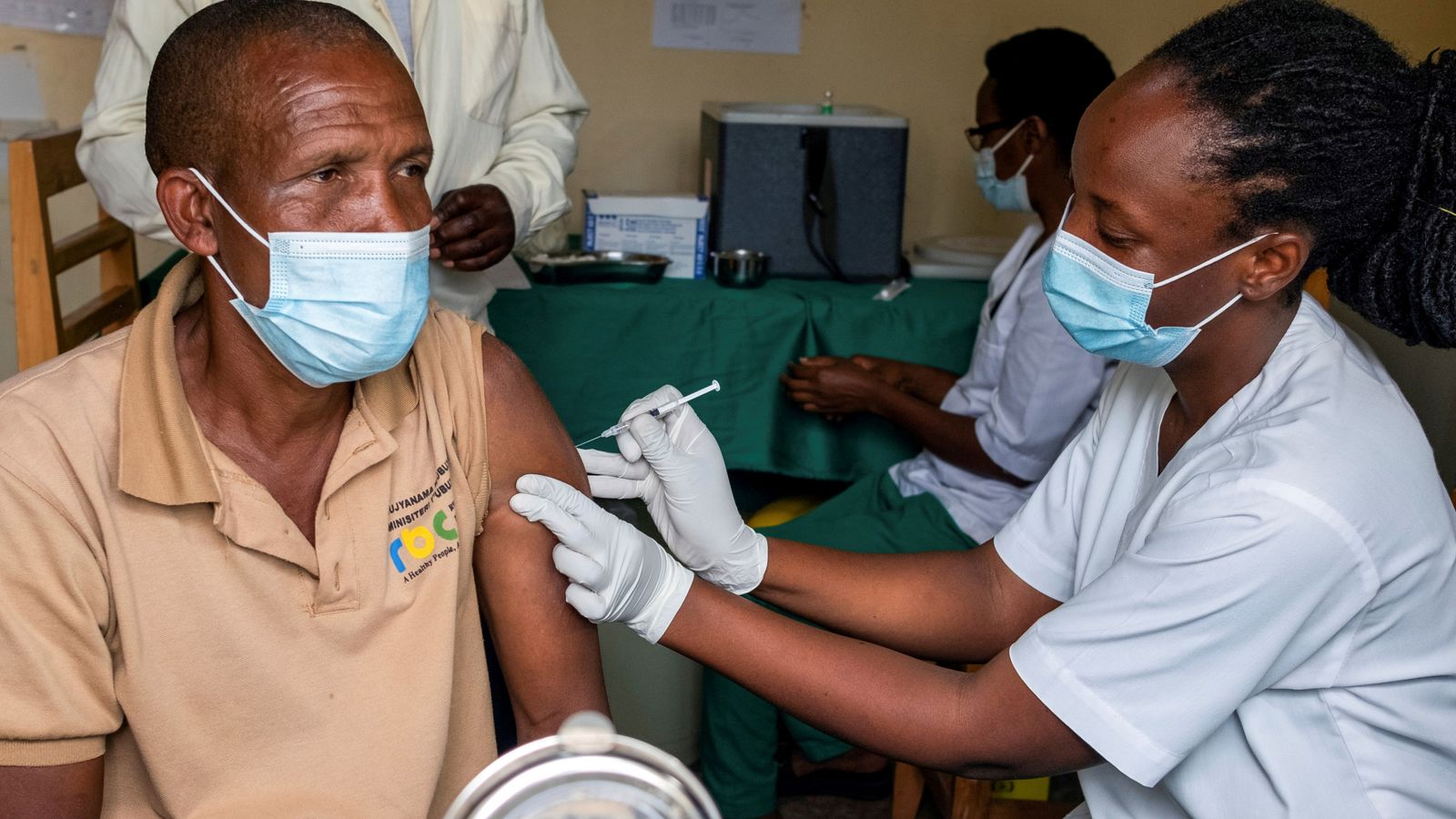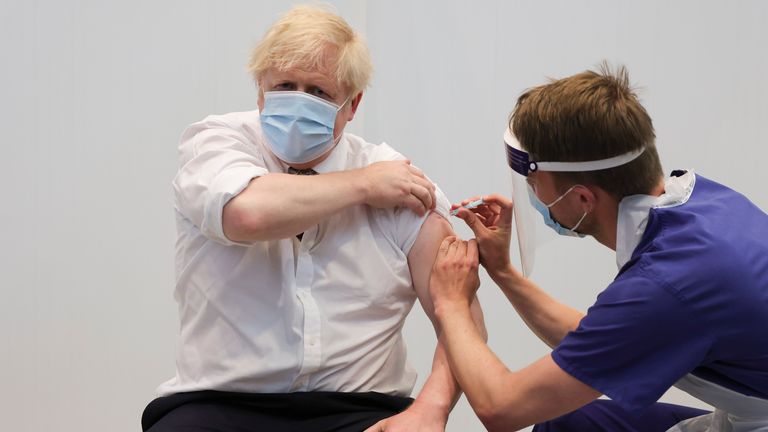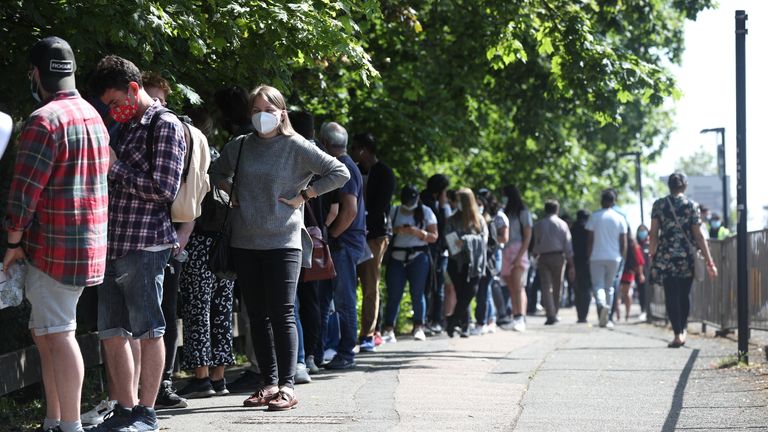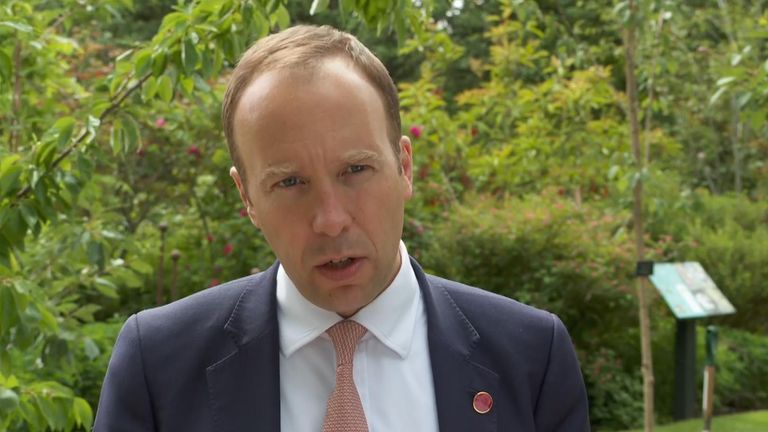The prime minister will call on G7 leaders to pledge to vaccinate the world’s population against COVID-19 by the end of 2022.
Boris Johnson is planning to use the UK’s presidency of the group to push for global vaccination coverage within the next 18 months.
When he meets fellow G7 leaders face-to-face on Friday – including President Joe Biden for the first time since his election win – Mr Johnson will call on them to “rise to the greatest challenge of the post-war era” to stop the coronavirus pandemic, which has infected at least 172 million people and killed more than 3.7 million worldwide.
Mr Johnson said: “The world is looking to us to rise to the greatest challenge of the post-war era: defeating COVID and leading a global recovery driven by our shared values.
“Vaccinating the world by the end of next year would be the single greatest feat in medical history.
“I’m calling on my fellow G7 leaders to join us to end to this terrible pandemic and pledge we will never allow the devastation wreaked by coronavirus to happen again.”
According to data collated by US university Johns Hopkins, some 2.076 billion vaccine doses have been administered across the world thus far.
But with most of the vaccines available requiring two doses for full protection, this number is not enough.
The UK has secured access to more than 400 million doses of COVID-19 vaccines over the next two years, after creating a portfolio of seven different vaccines.
Some 67 million doses have been administered already, with more than 27 million people fully vaccinated, and many parts of the UK are now vaccinating people in their 20s.
The prospect of vaccinating children has also been raised this past week after the medicines regulator approved the Pfizer jab for 12 to 15-year-olds.
Meanwhile, many poorer countries have not even managed to vaccinate health workers – who are among those most at risk – due to lack of funds, inadequate infrastructure or, most often, lack of supply.
Vaccinating the whole world is not just important morally – supply chains and global economic activity cannot fully resume until all countries can open up.
And new variants are more likely to occur if large groups of people are unvaccinated, possibly rendering our current vaccines less effective.
In February, Mr Johnson said the UK would share the majority of any surplus COVID vaccines.
And on Friday, Health Secretary Matt Hancock promised the UK would “absolutely” look to donate spare doses – but added there were not any available yet.
“At the moment we don’t have any excess doses – we’re just getting them into arms as quickly as possible,” he said.
Germany, France and Italy, on the other hand, have vowed to donate at least 100 million doses of COVID-19 vaccines before the end of the year.
Downing Street has held up its £548m contribution to Covax, the United Nations-backed scheme aiming to make vaccines available to low and middle income countries.
But this only fixes half of the problem: you cannot buy vaccines if there are none available – no matter how much money you have.
British taxpayers also made a major contribution to the production of the Oxford-AstraZeneca vaccine, which – because it is being sold at cost – is the main vaccine being used in poor and middle income countries.
Number 10 says almost one in three shots given around the world have been the Oxford vaccine and it makes up 96% of the 80 million shots administered by Covax.
The G7 leaders will meet in Cornwall’s Carbis Bay on Friday for three days of meetings discussing issues such as the global recovery from the pandemic.
They will be joined by experts including the UK’s chief scientific adviser Sir Patrick Vallance, philanthropist Melinda French Gates, and environmentalist Sir David Attenborough.
On Saturday, they will be joined either in person or virtually by the leaders of Australia, South Africa, South Korea and India for discussions on health and climate change.



